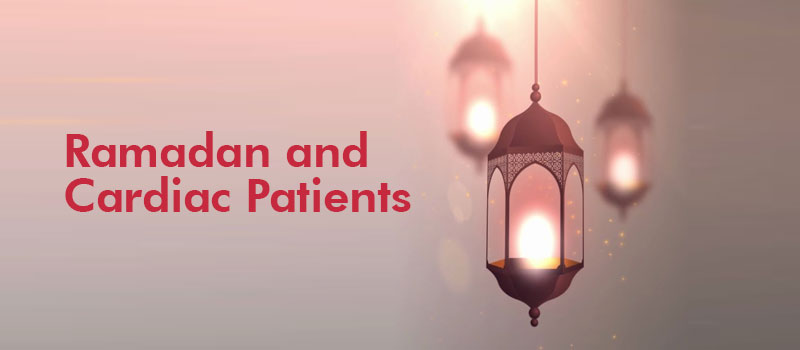As the Holy month of Ramadan is quickly approaching, Muslims in Dubai are gearing up for their yearly month of observing fasts. While all Muslims are eager to fast in the month of Ramadan, cardiac patients often experience worry as to how a month of fasting may effect their health. The warm Dubai weather is another cause of concern for cardiac patients.
There is no proven link between observing fasts in Ramadan and deteriorating health in cardiac patients. Even so, precaution is always better. Therefore it is important to do your own research and conduct with your cardiologist in Dubai to ensure that you have a smooth experience fasting.
So, if you are a cardiac patient and worried about fasting in the month of Ramadan, here’s what you should do to minimize any negative effects:
1. Visit Your Cardiologist
Be sure to book an appointment with a specialist cardiologist in Dubai prior to the month of Ramadan. This will give you an opportunity to discuss any concerns you have related to your heart illness and the possibility of fasting.
If you are taking medication, then a specialist cardiologist will help you adjust the dosage and timings according to the fasting schedule. They may even recommend switching to a different type of medication or dosage that has longer lasting effects, so that you do not experience any difficulty throughout the duration of the fast.
While there is no known negative effect of fasting on cardiac patients with a stable heart disease, you should still ask your cardiologist if it is safe to fast. You can also ask for advice on how to remain healthy throughout the month.
Patients with a severe cardiac disease, or who frequently experience symptoms such as chest pain and difficulty breathing, may be advised against fasting.
2. Have Smaller Meals
To reduce any negative effects on heart health, cardiac patients should consider having three or four smaller meals between Iftar and Suhur, rather than two large meals.
The idea behind having smaller portions is that it will help your body metabolize your food more easily, and will prevent problems such as indigestion or heartburn, both which can cause aggravation in heart patients. Eating large meals can also trigger shortness of breath, another symptom experienced by heart patients.
A specialized cardiologist can further guide you regarding the ideal meal schedule and timings according to your medication and dosage during Ramadan.
3. Healthy Food Choices
Ramadan can actually be a good time to improve health. Smaller meals and abstinence from smoking can reduce the risk of further heart diseases. Making healthy food choices is another good way to reduce the risk of negative effects on the heart during Ramadan.
Avoid opening your fast with fatty, fried foods. Instead opt for fresh fruits and vegetables, whole grains, and healthy fats. Be sure to eat plenty of dates to regain your energy and maintain your glucose level. Furthermore, drinking water will further help cleanse your body. These food choices can prevent the formation of plaque in the arteries and cleanse the blood.
You can also ask a specialized cardiologist about the foods they recommend for consumptions, according to your heart disease. In general, you should avoid food and drinks that can elevate cholesterol levels in the body.
Therefore, there should not be any major negative effect of Ramadan on cardiac patients. In fact, with the right lifestyle and dietary changes, Ramadan can actually be a good time to improve your heart health.
Even so, heart patients should always consult with a specialized cardiologist before making any routine changes. Book an appointment with a Specialist Cardiologist at the German Heart Centre for a consultation before the Holy month.
Have a blessed Ramadan!

